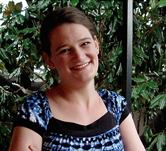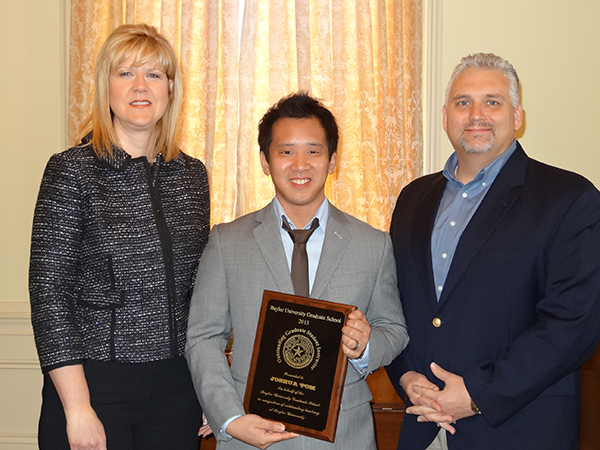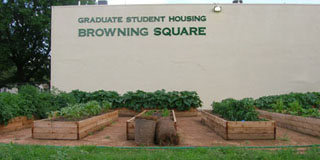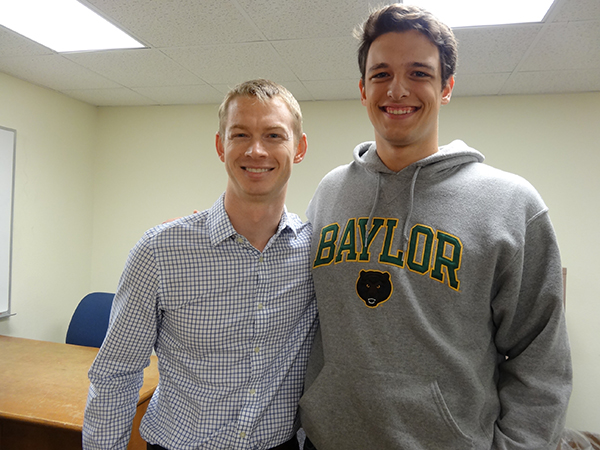After a week of attending graduate school at Baylor, I actually did learn a few things and was told to write them down before everything was forgotten.
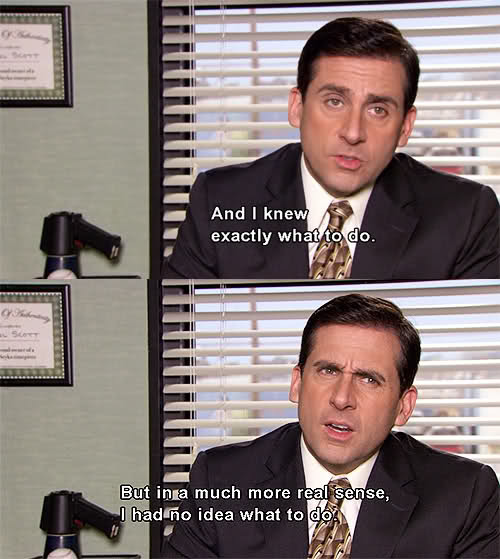
1. That Baylor Is Very Much an Undergraduate Campus
I should’ve realized this from the get-go, but despite my impressive graduate school status, I am still young and naïve. It all started when I visited campus during the summer when only the faculty, staff, and a handful of students were present. It was so incredibly peaceful. I moved into my apartment two weeks before the start of the semester, while the campus was still ever so serene. A week later at orientation, I was listening when Dean Lyon said that undergrads outnumber us six to one and that this is primarily an undergrad campus. Oh, Dean Lyon, I thought. He doesn’t know that this is what it feels like going to a school that doesn’t have over 35,000 students, that this is so nice.
Then, my first day of class came and along with it my first lesson learned. I walked through campus and found students everywhere. They were sitting in my swinging chair, standing in line at my Starbucks, and trying to run me over with their overzealous mopeds on my cross-campus path to class. What was going on? I wondered. Where did all of these students come from? Why was everybody dressed to go to the gym, how do large groups of students have time to “play ultimate,” and how were the parking lots littered with fancy cars with blasting sound systems? Don’t they have to go class, or to their jobs, or to their apartments to wash their clothes and clean their dishes and feed their cats?
No, they don’t. Because they are undergrads. Because this is primarily an undergraduate campus (my apologies, Dean Lyon). But that is not necessarily a bad thing. Because of the large number of undergrads, we, graduate students, have access to a massive and comprehensive library system, a well-equipped gym (complete with a rock wall, swimming pool, indoor track, and my favorite: yoga classes), over two hundred campus organizations, and plenty of comic relief. I take advantage of these FREE resources every day, while I watch the undergrads as they take me back to a simpler time.
2. To Start Budgeting (Stop Spending) Money
Throughout my undergraduate career, I was fortunate enough to have a job around the holidays, during summer break, and on the weekends when I ventured home. This job provided a decent-sized check that I could put in the bank, while also providing a healthy sum of cash I could pocket. Because of this, my budget was always based on the amount of money that I had in my wallet (and the amount of times I visited my grandparents). And it worked pretty well. But then a strange thing happened to me before I came to graduate school, I was accepted for a credit card. That tiny, plastic rectangle could account for hundreds of dollars and my slowly diminishing wads of ones and fives seemed more trivial than ever.
Now that I’m in graduate school, I’m still working the same amount of hours, but one hundred percent of my income is direct-deposited. I pay my rent, my utilities, and my internet bill online and Vitek’s (the local BBQ joint with the appropriately named Gut-Pak) takes cards so there is no need to have a significant amount of cash on me at any time. But that resulted in my card being used for everything, all the time, no matter the place, no matter the price. Even after just one week, it started to accumulate. I realized that the next time I go to the store I will have to use coupons and only buy things that H-E-B has on-sale; that going out to eat every night was a lifestyle that I wanted, but could not afford; and that I need to give my grandparents my new address so they could send their favorite grandson more money.
After that fateful first week, I find myself doing boring, adult things like budgeting (and going to sleep before the clock reaches double digits). Each day, I write down my expenditures because a visual of the money I am spending, something that a plastic rectangle cannot offer, is often helpful. I set a budget each week for groceries and gas, going out to eat or drink (once during the weekday and once on the weekends), emergency costs that may arise, and Shorty’s pizza (where an extra-large pepperoni pie is only $9.99!). And it’s working pretty well.
3. That the Professors Truly Care
I think that this one may be uniquely personal. I was a history major (after switching my major twice). I didn’t have a clue what I was going to do after I walked off that stage with my degree. I had no passion for the field. I had no relationships with the professors. I didn’t even know that I wanted to be in the museum field until my last semester when I accidentally signed up for the only museum class at the university. After a few weeks though, I found myself visiting the professor’s office (on purpose) and a few months later asked him to write a letter of recommendation that may have tipped my application into the accepted pile. I enjoyed that relationship, but learned that they get even better.
Graduate school is very intimate. The programs are small, which leads to the professors knowing all of our names and their willingness to always help out. They are interested in our success and treat us as professionals. And I thoroughly enjoy that, even after one week, I can both joke with them (I’m looking at you, Dr. Hafertepe) while also having intellectual conversations about the current challenges that face our field. They say, and believe, that we are the future of museums and make us feel like we are important, intelligent, and respected. It is refreshing and gives us the confidence we need to succeed.
Because of this, we come to class with every line read and challenging questions in mind. We don’t want to disappoint the people who believed in us so much that they personally chose us to be in their program. They share personal experiences that strengthen our bond and contacts that will strengthen are resumes. They are scheduling to take us to see their friends who work as directors, curators, and educators in museums and at historical sites that are successfully evolving with the twenty-first century. They truly do care and I’m excited to continue our relationships for the remainder of the program and for the rest of our lives.
4. To Embrace the Uncomfortableness
Embrace it! Believe me, I know as much as any other introvert that meeting new people can be awkward and uneasy. I always liked to (and was content with) staying with my family and my friends and never actively sought to enlarge my social group. But being in Waco presented a specific challenge: I was 300 miles away from my closest friend and over 1500 miles away from my family. Essentially, I was all alone and that was really scary. I could (and maybe did) wallow in my room and listen to Dashboard Confessional while downing half-gallons of ice cream, but I don’t want to be that person. I decided that I wanted to be the person that takes full advantage of my two years at Baylor. I decided to look at my situation not as a challenge, but as an opportunity.
As previously stated, I went to a large university for my undergraduate degree, but it still seemed like ninety-five percent of the people were from eastern Pennsylvania. It was comforting that we all shared that in common and could talk about the Phillies or the Flyers, but after a while I got tired of the routine, of the expected. That is exactly why I came to Baylor and to Waco. I wanted to meet new people from different corners of the country and I wasn’t going to accomplish that by staying at home in a pile of mint chocolate chip sludge.
All of the first-years met during orientation (and awaited the Sorting Hat). Despite it being pretty awkward, everyone seemed welcoming and we quickly became friends on Facebook. It seemed that this was going to be easier than I reckoned. But then when the call came in to physically hang out again, only a handful (four) decided to answer. Did that stop the four of us from getting a drink at Dancing Bear? Nope. Were there times when it was disturbingly silent before someone would say something? Yep. Did I say stupid things that were embarrassing? You bet. Are the four of us best friends after only the first week? Absolutely.
There are no (very, very, very few) excuses. One of my new best friends went to Baylor as an undergrad and still has friends around campus as well as a significant other and a family that is less than three hours away. Did she use any of those reasons to not go through the often agonizing, tortuous process of making new friends? No! Believe me, I know it would be easy to avoid, especially if you have a legitimate excuse or enjoy being a successful introvert, but making the next two years a whole lot more comfortable starts by embracing the uncomfortableness. It is worth it.
5. That I Can Do It
During orientation, the theatre department acted out sketches and one of them addressed a fear that I thought only I had: that I didn’t belong here. My undergraduate grades were alright, but not perfect; my experience in the museum world was limited; and I didn’t know if I was ready for the gauntlet known as graduate school. I spent countless nights over the summer wondering if they made a mistake accepting me, if I over-exaggerated too much on my resume (never), if I was going to disappoint everyone that had become so proud of me.
The first week we were given upwards of 150 pages to read. I hate reading anything that doesn’t start with “Harry Potter and the…” I wasn’t sure I was going to be able to do it – my days were full of classes and jobs, while my nights were spent juggling the gym, housework, friendship, and Netflix – but I had to. I spent most of Saturday afternoon with my phone and TV turned off. Six hours later I was half-way through the assignments – the fact that I wanted to have insightful things to say during class discussions made my reading slower – and I knew I needed a break. I texted my friends and hung out with them for the remainder of the night without a single word about museums spoken. Sunday came and went with more hours spent reading and taking notes, but also featured watching the ‘Stros game on TV.
There is a weight that needs to be balanced with extreme caution: too much work and your mind will slowly wither away, but too much play and your mind will slowly wither away, as well. At one point, this balancing act seemed like a daunting task, but now I know that it is totally manageable. I learned that I can do this grad school thing, but only with great friends, kind professors, daily(ish) exercise, and a little money saved for Saturday night.
By Matthew Doyen





